Ecommerce has witnessed a high-quality boom in latest years, turning into a vital thing of the enterprise panorama. With clients increasingly shifting their purchasing behavior online, corporations are looking for assistance from ecommerce development organizations to set up and control their online presence. Choosing the right company can be tough amidst numerous alternatives available. To address this, we’ve got compiled a guide providing the top 5 e-commerce development companies to look at in 2023.
Furthermore, studies imply that a big 93% of clients assume an advanced shopping experience when shopping online as compared to in-shop. This statistic highlights the developing significance of handing over extremely good online purchasing studies and in addition emphasizes the relevance of e-trade development companies in assembly consumer expectations.
Ecommerce Development Companies Importance
Let’s say you’re a small business owner who wants to start selling your products online. You know that you need an e-commerce website, but you don’t have the technical expertise to build one yourself. You decide to hire an ecommerce development company to help you.
If you choose the wrong company, you might end up with a website that looks unprofessional, is difficult to navigate, or doesn’t have the functionality you need. This could result in lost sales and damage to your brand reputation. On the other hand, if you choose a reputable and experienced ecommerce development company, they can help you build a website that not only looks great but is also easy to use, secure, and optimized for search engines. This can help you attract more customers, increase sales, and grow your business online.
Presently, having a strong online presence is essential for businesses of all sizes. Therefore choosing the right ecommerce development company can make all the difference in helping you achieve your goals and succeed in the competitive world of e-commerce.
Read More: Guide for Creating an Ecommerce Website
5 Best E-commerce Development Companies
We have listed the 5 best ecommerce development companies’ features, pros & cons of each platform. let us see each platform one by one.
1. Wcart
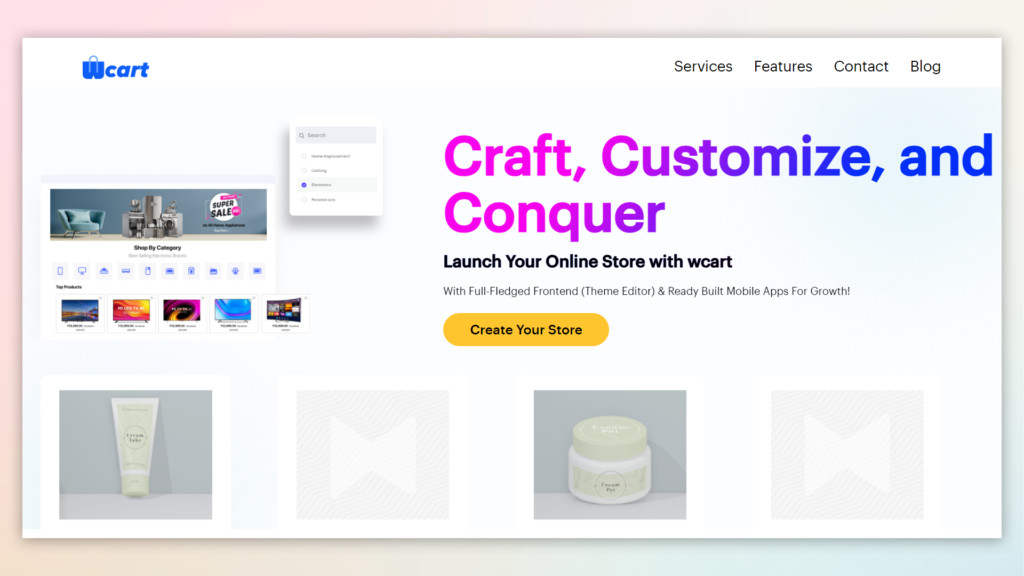
Wcart is a cloud-based ecommerce platform that allows businesses to create and manage online stores easily. It is one of the Top e-commerce development companies that offer more flexibility and customization options for businesses. Wcart provides a user-friendly interface that allows users to design and launch their online store quickly.
Wcart Key Features
Wcart’s key features include a drag-and-drop website builder, customizable checkout pages, and multi-currency support. The platform also offers various payment gateway integrations, including PayPal, Stripe, and Square. It allows businesses to sell physical and digital products, as well as services and subscriptions. Wcart also offers a trial for businesses to test out the platform before committing to a pricing plan.
Wcart Pros and Cons
PROS:
- This platform offers more customization options than Wix which allows businesses to create a unique and personalized online store.
- It charges lower transaction fees than other website builders, which can save businesses money on every sale.
- It has a user-friendly interface that makes it easy to design and launch an online store quickly.
- Offers a range of pricing plans to suit businesses of different sizes and budgets.
- It supports multiple currencies, which is useful for businesses that sell internationally.
Cons
- Wcart’s app store is not as extensive, which could limit a business’s ability to add new features or functionality. This isn’t a problem to launch your store with them as the apps are ready already.
- Wcart does not have as many third-party integrations, which could limit a business’s ability to integrate with other tools and services. But this wouldn’t inhibit someone from launching services towards ecommerce operations.
Overall, Wcart is a viable option for businesses looking for the best website that offers more customization and flexibility. Hence it’s a user-friendly interface and affordable pricing plans, Wcart is worth considering for businesses of all sizes.
Click Here: Start Your Dream Business with Wcart
2. Webnexs
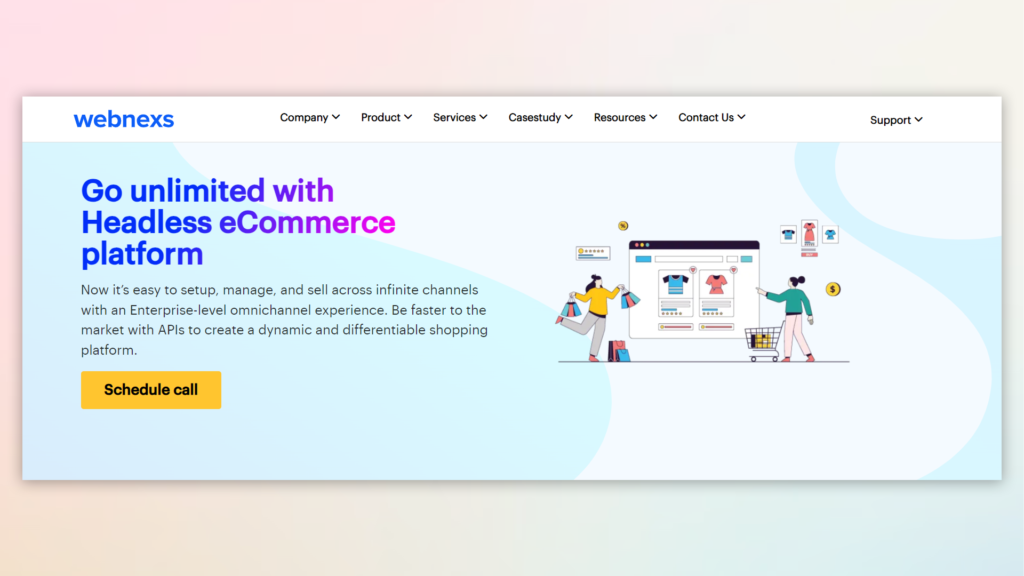
Webnexs is an ecommerce platform that offers a range of tools and features to help businesses create and manage their online stores. With Webnexs, businesses can design their own storefronts, manage products and inventory, process payments, and track sales and customer data. The platform also offers a range of marketing and SEO tools to help businesses drive traffic and increase sales.
Webnexs Key Features
One of the unique features of Webnexs is its drag-and-drop storefront builder, which allows businesses to design their own storefronts without any coding knowledge. The platform also offers a range of templates and themes to help businesses get started quickly.
Webnexs offers a range of tools to help businesses drive traffic and increase sales, including email marketing, social media integration, and SEO optimization.
Webnexs Pros and Cons
Pros
- Webnexs offers a user-friendly interface that is easy to navigate, making it easy for businesses to set up and manage their online stores.
- Offers a range of features to help businesses create and manage their online stores, including product management, payment processing, marketing tools, and analytics.
- This platform allows businesses to sell on multiple channels, including marketplaces and social media platforms, which can help increase their reach and sales.
- Templates that are optimized for mobile devices, ensuring that businesses can reach customers on any device.
Cons:
- While Webnexs offers a range of design templates, customization options are limited but they can be extended on demand, which may make it difficult for businesses to create a unique brand identity immediately. However, designs can be implemented on demand.
- Webnexs pricing may be slightly pricier than that of other platforms, as they offer a one-time payment solution, but it has a lot of additional unique features that will help your business succeed and increase ROI.
Overall, Webnexs is a powerful ecommerce development company that offers a range of features and tools to help businesses create and manage their online stores.
3. Shopify
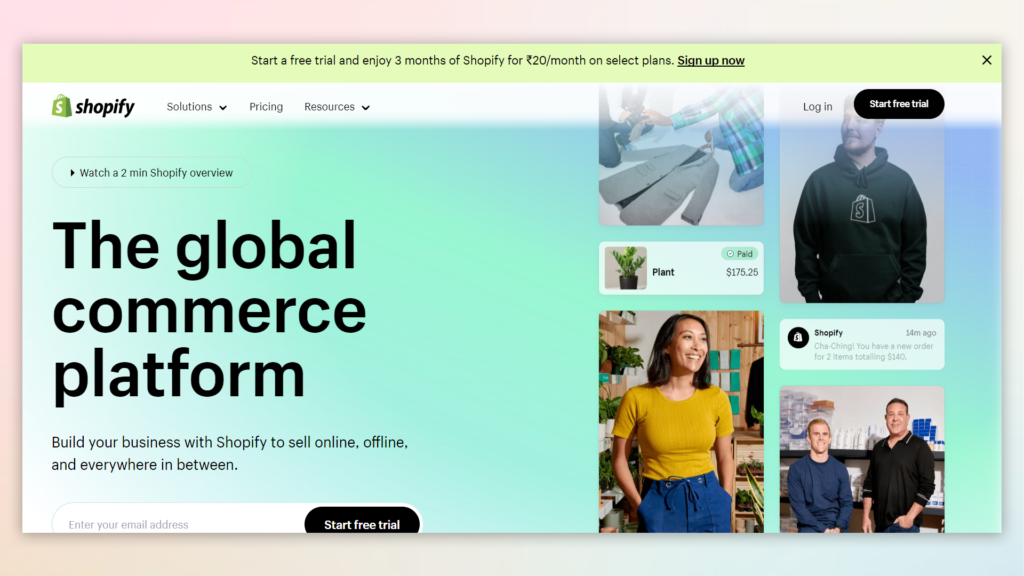
Shopify is an all-in-one ecommerce development company that allows users to create and manage their online store. The platform offers customizable templates and themes, a built-in payment gateway, shipping tools, and marketing and sales features. Shopify is known for its ease of use and user-friendly interface, making it a popular choice for businesses of all sizes.
Shopify Key Features
It offers a wide range of features and tools to help businesses sell their products online. Some of these features include customizable templates and themes, a built-in payment gateway that allows users to accept payments from various methods, shipping tools such as real-time shipping rates and label printing, and marketing and sales features including built-in SEO tools and integrations with social media platforms like Facebook and Instagram. Shopify also offers inventory management tools, order tracking, and customer profiles to help businesses manage their online store.
Shopify Pros and cons
Pros:
- Shopify is known for its user-friendly interface and ease of use, making it accessible to businesses of all sizes and technical skill levels.
- E-commerce features, include a built-in payment gateway, shipping tools, and inventory management, making it a comprehensive platform for online businesses.
- It has a range of customizable templates and themes, allowing businesses to create a professional-looking website that matches their branding and style.
- This platform offers such as built-in marketing and sales tools, including SEO tools, social media integrations, and email marketing, helping businesses increase their online visibility and sales.
- It offers a range of third-party app integrations, allowing businesses to add additional functionality to their online store.
Cons:
- Shopify can be more expensive than other website builders, especially for businesses just starting out.
- While Shopify offers customizable templates, users may find the design customization options limited compared to other website builders.
- This platform charges transaction fees for using third-party payment gateways, which can add up for businesses with high sales volumes.
- While Shopify is easy to use for basic functions, some of the more advanced features may have a steeper learning curve for less technical users.
- Its blog functionality is limited compared to other website builders, making it less ideal for businesses that want to prioritize content marketing.
Read More: To Know about Shopify Alternatives.
4. Magento
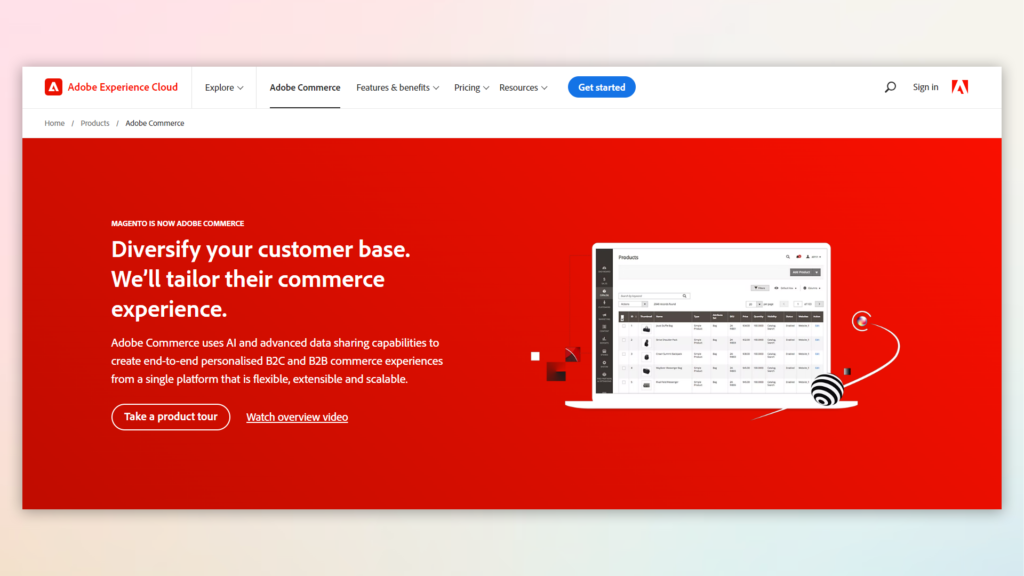
Magento is a popular open-source ecommerce development company that was launched in 2008. It offers a range of features such as product management, order management, marketing, payment and shipping options, and customer management. It is known for its customizability, scalability, flexibility, and SEO-friendly architecture. Magento is available in two versions: Magento Open Source and Magento Commerce.
Magento Key Features
Some of the key features of Magento include product management, order management, marketing and SEO tools, payment and shipping options, and customer management. With its flexible and customizable architecture, Magento enables businesses to create unique and engaging shopping experiences for their customers. Additionally, Magento offers a robust community and marketplace for extensions and plugins to enhance its core features.
Magento Pros and Cons
Pros:
- This is a highly scalable platform that can grow with your business. It can handle large numbers of products, customers, and orders without sacrificing performance.
- This platform offers a wide range of customization options, from design templates to third-party extensions. This allows businesses to create unique and personalized online stores that align with their branding and business needs.
- Magento is open-source software, which means that it is free to use and can be customized to meet the specific needs of your business. This also means that there is a large community of developers and users contributing to its development and offering support.
- It allows businesses to manage multiple online stores from a single backend, making it easier to streamline operations and track performance.
Cons:
- This platform can be complex to set up and manage, especially for businesses with limited technical expertise. It can lead to a steep learning curve and require more resources to maintain.
- While the software itself is free, using Magento can be costly due to the need for hosting, development, and extensions. This can make it less accessible for smaller businesses or those on a tight budget.
- Magento can be resource-intensive, requiring more server resources and processing power than some other ecommerce platforms. This can lead to slower load times and a less optimal user experience.
Read More: To Know about Magento Alternatives.
5. Woocommerce
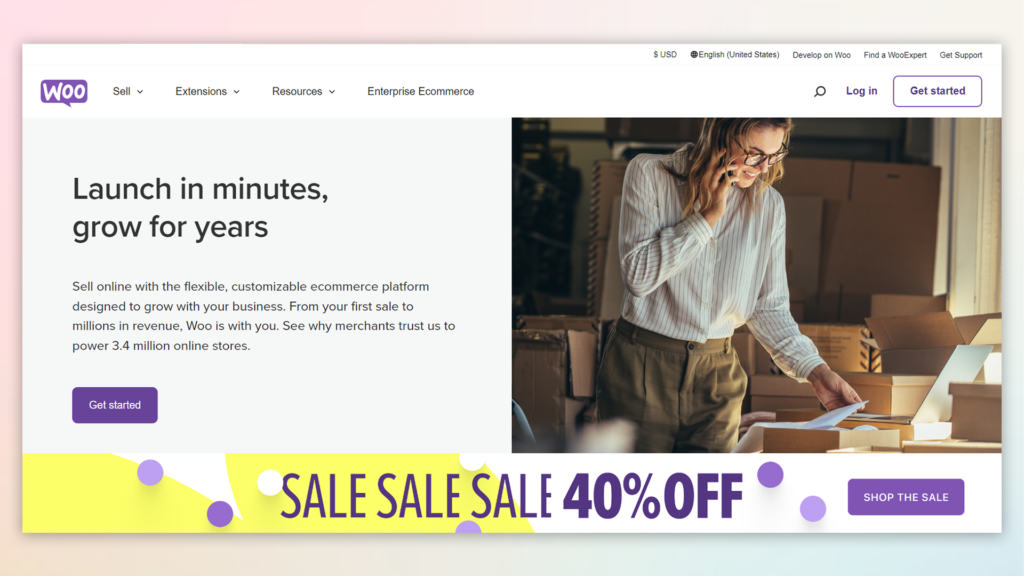
WooCommerce is an open-source ecommerce plugin for WordPress websites. It is a popular platform for small to medium-sized businesses looking to create an online store.
Woocommerce Key Features
WooCommerce offers a range of features to help businesses manage their online stores i.e. product and inventory management, order and payment processing, and shipping and tax calculations. It also offers a range of customization options, such as design templates and third-party extensions, to help businesses create a unique and personalized online store that aligns with their branding and business needs.
Woocommerce Pros and Cons
Pros:
- This platform is seamlessly integrated with WordPress, allowing users to easily manage their online store and website in one place.
- This is free to download and use, making it an affordable ecommerce solution for businesses of all sizes.
- Woocommerce offers a range of design templates and third-party extensions, allowing users to customize their online store to their unique branding and business needs.
- It offers a range of payment gateway options such as PayPal, Stripe, and Square, giving businesses the flexibility to choose a payment method that works best for them.
Cons:
- Although WooCommerce is user-friendly, it still requires some technical knowledge to set up and manage an online store.
- Unlike Wcart, which offers 24/7 customer support, WooCommerce’s support is limited to forums and documentation
- While WooCommerce is a great solution for small to medium-sized businesses, it may not be as scalable as some of the other ecommerce platforms on the market.
- Plugin compatibility issues: Some third-party plugins and extensions may not be fully compatible with WooCommerce, Therefore which can lead to technical issues and challenges in managing an online store.
Read More: To Know about Woocommerce Alternatives.
Conclusion
Finally, Wcart is a powerful and popular e-commerce platform that offers a wide range of features and customization options for businesses of all sizes. To select the top e-commerce development companies or evaluate potential partners, it is essential to consider various factors such as their experience, portfolio, technical skills, customization and scalability capabilities, user experience and design, support and maintenance, and cost and budget.
By taking the time to carefully evaluate these factors, you can select an e-commerce development companies that can deliver a high-quality and effective solution for your business.
Frequently Asked Questions(FAQs)
1. What is an e-commerce development company?
An e-commerce development company is a business that specializes in creating and maintaining e-commerce websites for other businesses. Hence they have the technical expertise and experience to build custom e-commerce solutions that meet the specific needs of their clients.
2. Why should I hire an e-commerce development company?
Hiring an e-commerce development company can save you time, money, and frustration. They have the skills and experience to build a website that is tailored to your business needs and goals, and they can help you avoid common pitfalls and mistakes that can cost you in the long run.
3. How do I choose the right e-commerce development company for my business?
When choosing an e-commerce development company, it’s important to consider factors such as their experience, portfolio, customer reviews, pricing, and communication skills.
4. What services do e-commerce development companies typically offer?
E-commerce development companies offer a range of services, i.e. website design and development, shopping cart integration, payment gateway integration, shipping, and tax configuration, product catalog management, and ongoing maintenance and support.
5. How long does it take to build an e-commerce website?
The timeline for building an e-commerce website can vary depending on the complexity of the project and the availability of resources. Generally, a simple e-commerce website can be built in a few weeks, while a more complex website may take several months or more.
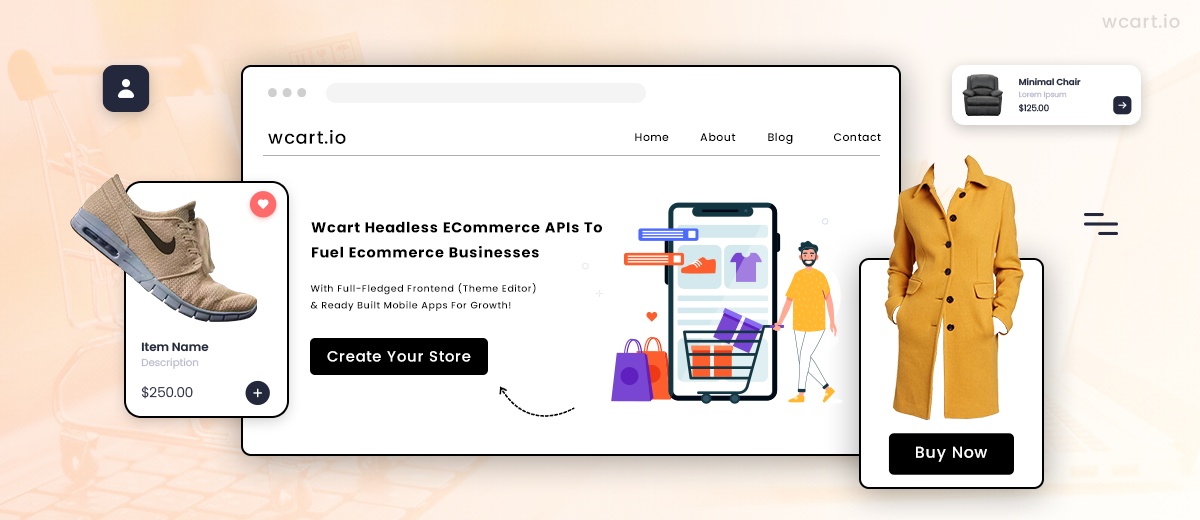



Leave a Reply